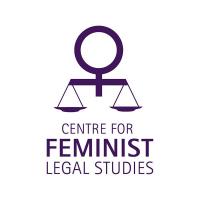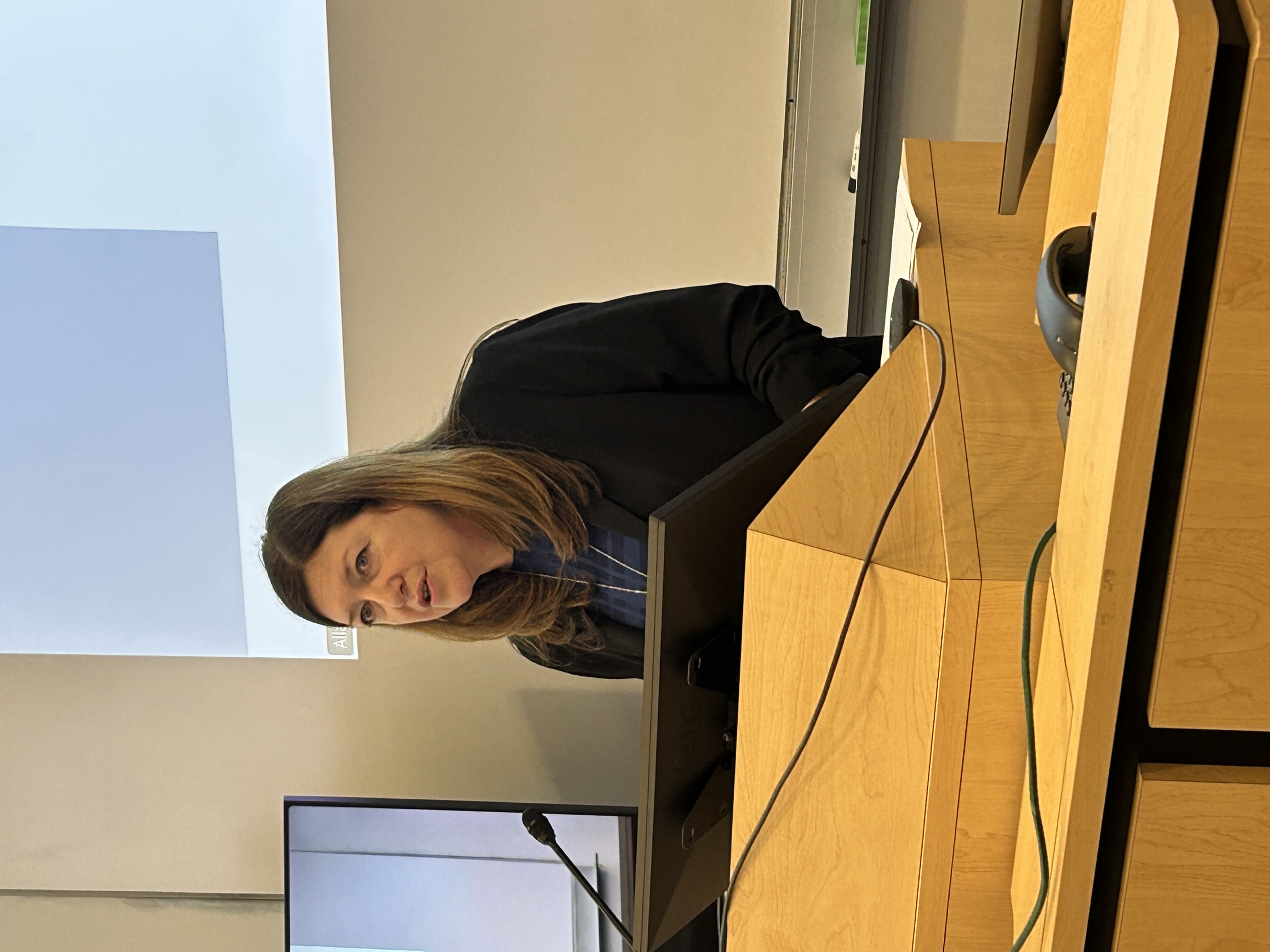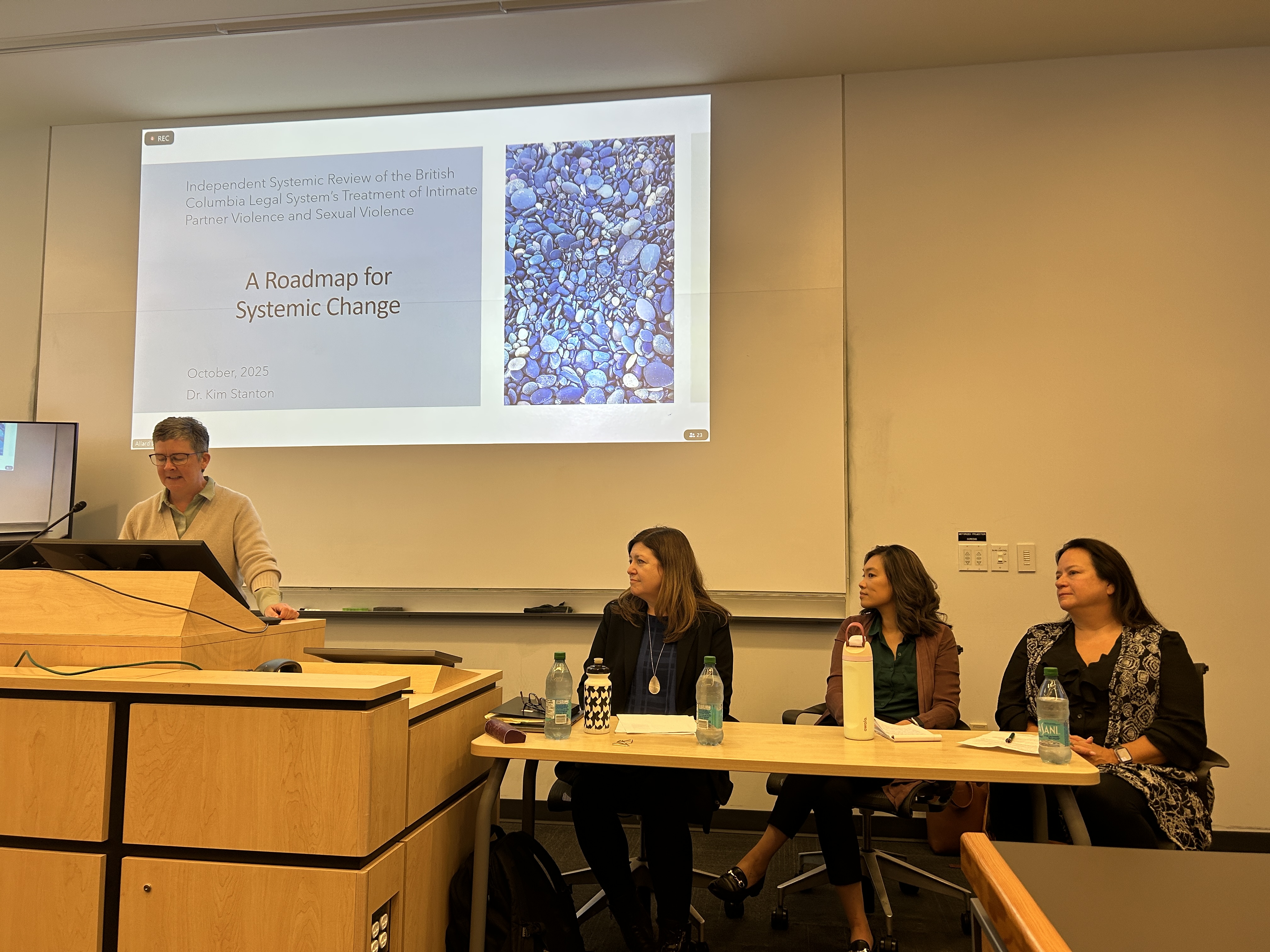Accountability and Collaboration: Meaningful Legal Change to Prevent Gender-Based Violence

Centre for Feminist Legal Studies
Nov 11, 2025
The BC Legal System and Gender-based Violence: A Roadmap for Systemic Change by Sabina García Ortega (J.D. Student, Peter A. Allard School of Law)
The Centre for Feminist Legal Studies (CFLS) was delighted to host a panel chaired by Professor Emma Cunliffe featuring experts Dr Kim Stanton, Vicky Law, and Kory Wilson (Hemas Kla-Lee-Lee-Kla). The panel engaged in a rich discussion of the state of the legal system’s approach to gender-based violence (GBV) and advocated both for implementation and functional reform.
Dr Stanton gave an overview of her recent report—The British Columbia Legal System’s Treatment of Intimate Partner Violence and Sexual Violence—which critically asks: why, if ample recommendations have been made (and repeated) to our legal system, are we not seeing any material change take place? GBV still fails to be treated with the appropriate seriousness, is severely underreported, and very few instance of GBC result in a criminal conviction. Dr Stanton described this two-fold nature of GBV—what is happening both in society and in the legal system that impedes survivors from accessing and achieving justice, and how must we begin to tackle this problem. She noted that we have many good laws on the books; the gap is in implementation.
Dr Stanton highlighted two main recommendations. First, there is a need for accountability of legal system actors and institutions. The call for accountability ties many current issues, such as the troubling widespread normalization of GBV, and the poor implementation of and follow-up on current policies. As a systemic and evolving issue, it is not reasonable to reduce GBV’s solution to a simple one-and-done checkbox. Second, there is a pressing need for collaboration. Legal institutions and lawyers are unable to solve the many challenges that often accompany GBV, from employment, housing, mental-health support, and more. However, community organizations that deal with these issues and support survivors do exist and they are the least funded among institutions in this sector. Sharing information and resources between all institutions and supports could be crucial to ensuring someone’s safety and well-being. Dr Stanton also stresses how accountability and collaboration reinforce each other, creating a loop whereby one propels the other. Her report makes a number of practical recommendations to improve accountability and collaboration. For example, she recommended that the province appoint a GBV Commissioner and create a standing committee to examine GBV deaths in the province.
Vicky Law, the Executive Director of Rise Women’s Legal Centre, echoed Dr Stanton’s sentiment regarding collaboration’s positive impact. She talked about how the missing element of many current laws and policies precisely seems to be a lack of collaboration; the law is only one piece of the puzzle. Kory Wilson, Chair of the BC First Nations Justice Council, further built on this call for collaboration, offering a nuanced perspective as to what it might mean for marginalized groups, in particular, Indigenous women.
She highlighted the importance of recognizing how everything is interconnected, in particular when it comes to systems of oppression, and how, in the case of marginalized peoples, collaboration to provide counselling, employment, housing, and more becomes even more crucial. She highlighted the work of the many new Indigenous Justice Centres located across the province. Moreover, Wilson spoke about how this broader and collaborative support could ensure access to justice for Indigenous people, including Indigenous women who are disproportionately victimized and criminalized.
The speakers’ critical perspectives underscored the need for a legal system that collaborates and is held accountable to achieve justice for survivors of GBV. In a time where legal reform can feel stagnant or inadequate, the speakers remind us that improvement is possible. The CFLS extends sincere thanks to our speakers and attendees for contributing to such a significant discussion.
- Centre for Feminist Legal Studies




